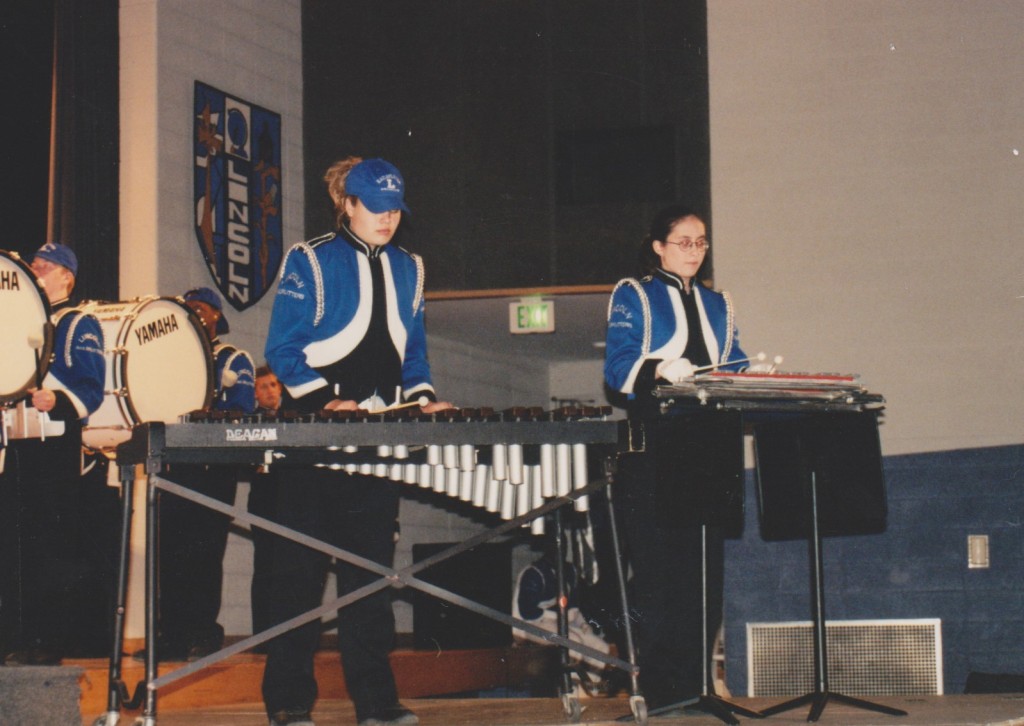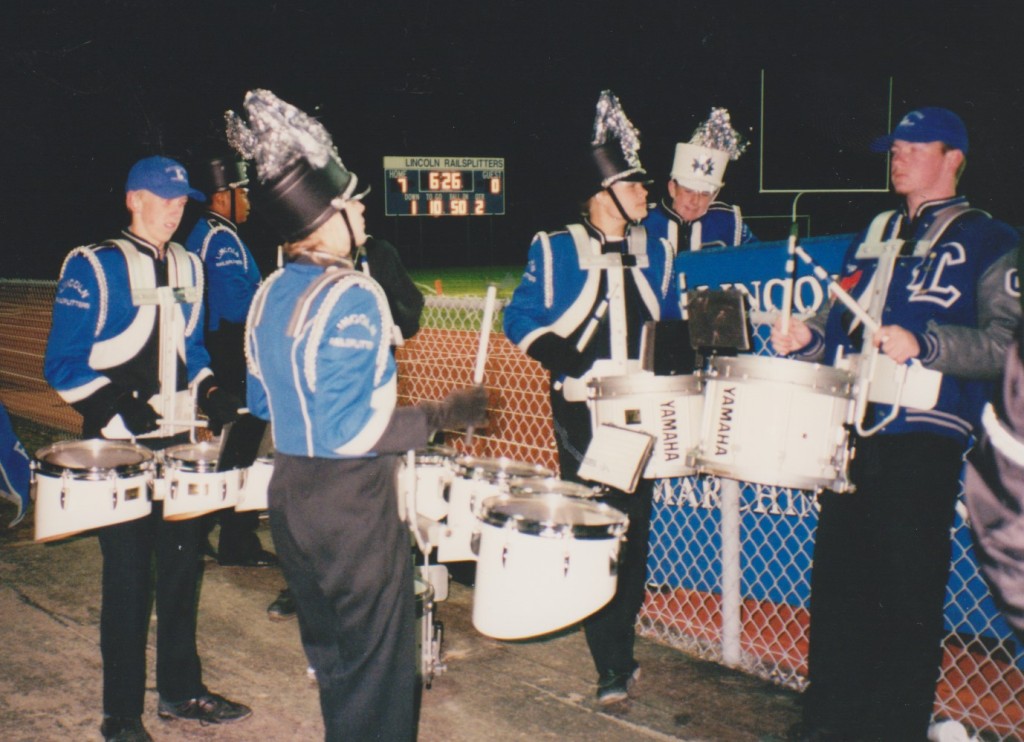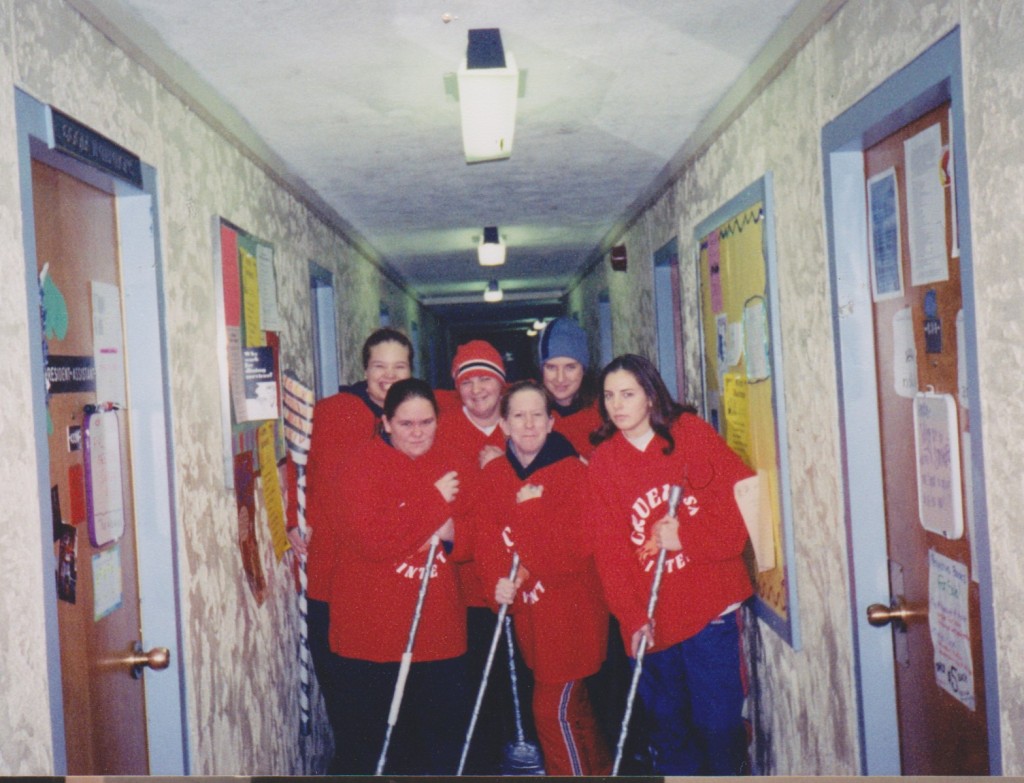My drumline instructor when I was a freshman in high school once told us a really terrible joke about tuning piccolos (the extremely high-pitched mini-flute-like instrument absolutely essential to any John Philip Sousa march). I don’t remember it exactly, but it went something like this…
Q: How do you tune two piccolos?
A: Shoot one of them.
I told you it was horrible.
Yet, I was reminded of that punch line when I found myself facing this similarly challenging question yesterday afternoon…
Q: How do you get two biostatisticians to agree on an analytical approach?
The punch line has got to be similar.
Statisticians never agree.
Never.
Except there’s a difference. Bring a person with perfect pitch into the room (perfect pitch is an amazing and rare gift– I’m pretty sure Kevin from the LHS drumline, the guy who we called upon to tune our timpanis, had it. Absolutely amazing.) and you’ll be able to figure out which piccolo is hitting the right note and which one needs to adjust. That’s a Truth. In contrast, in biostatistics, there are many different ways to come to an answer and determining which way is the right way is really just a matter of opinion. Each approach may seem like an obvious Truth to the statistician that espouses it, yet both approaches are actually truths.
See the difference? The big T versus the little?
There are, in my mind, two different kinds of truth: Truth and truth. As a scientist, my tendency is to think of them in terms of a law (Truth) and a theory (truth). A Truth is a fact, a thing that is undeniable. Gravity is a law, it’s a fact, it’s a Truth. That gravity has an abnormally strong effect on me, thus explaining my general tendency toward clumsiness? That’s a truth. The truth can be different for you and me. The Truth cannot.
Like the word innocence for the letter I, the notion of truth keeps popping up over and over again in my life just as I hit the letter T. So it must be the word. (It was going to be Toot Sweets and Truly Scrumptious because I love Chitty Chitty Bang Bang, but Truth/truth gets a little deeper– so let’s go with that instead.)
Things that can feel very Truthy for me might not be even close for you. Take the Oxford comma, for example. (Are you into nerdy things like grammar? If so, I highly recommend you click on that Oxford comma link– it’s an amazing infographic entitled “The Oxford comma: Decried, defended, and debated” from Holy Kaw and I love it!) I have strong, personal feelings about the Oxford comma and will use it always, but there are two different opinions on that point and Oxford comma yes or no– either way is technically correct. Therefore, your own personal thoughts about the Oxford comma are just a truth. Not a Truth.
QED. (I was proving to you that the notions of law and theory, Truth and truth, don’t always have to be applied in a purely scientific capacity. I should have made that clearer from the get go. But now I’ve proven it and I’m not going back to re-write.)
I’m currently listening to the Audible version of the second book in the Divergent series. So intense! So good so far! Most recently, Tris and Four (pardon me, Tobias) were interrogated by the Candor faction (which for those of you not in the know, values honesty above all else) under truth serum. They were unable to lie and both were forced to admit some hard truths– big, important, sensitive, and personal truths. After each confession, the interrogator would be joined by everyone in the group for a chorus of the phrase “Thank you for your honesty.”
I liked that. That’s a good response to a personal truth, whether you agree or not. Whether it’s Truth or not. It’s respectful and neutral. Granted, it would probably be an awkward conversational moment if the exact phrase was actually used in real life (e.g. You: “My pants are too tight.” Me: “Thank you for your honesty.”), but I do think the notion of appreciating someone else’s honesty is a good one. A very good one. (Perhaps a better way to neutrally appreciate such a statement would be, “I’m sorry you feel uncomfortable.” But I’m an apologizer… so… you could probably come up with something better. You get the idea, anyway.)
As I thought about the concept of Truth vs. truth and my truth vs. your truth, I realized how important it is for me to always remember that there is a difference. It’s important from the perspective of sharing my truth and accepting the truth of others.
When I share my truths, I have to phrase them as such– I need to start with a phrase that lets the other person know that this is what I believe to be true, but that it doesn’t have to be their truth, because it’s not necessarily the Truth, no matter how correct it feels to me. Similarly, when someone shares their truth with me, even if they are certain it is the Truth, I have to remember that it’s ok to have a difference of opinion.
There are a lot of things we talk about where this distinction is important.
Robin Williams is gone and he took his own life. That is the Truth.
Why he did it, what it means, what can be done in the wake of this tragedy– we all have a different truth about that. I don’t know anyone in my generation who isn’t touched by this tragedy… and that it is a tragedy, I think that is a Truth.
Depression is like that though. It’s divisive because that things are bad feels so incredibly true for the person who suffers, regardless of how things look on the outside. Of how things Truly are. You cannot tell a person at the bottom of that pit that the pit doesn’t exist because to them, it is all they can see. The successful career and the happy appearance are True, but depression is a truth it’s hard to see as anything less than Truth for the sufferer. I promise.
…
Nearly two years ago now, Sister Doctor was rotating through psychiatry as part of her third year medical school rotations. During that rotation, she came into contact with an elderly woman who was hospitalized for severe depression and suicidal ideation. She did not want to live. The woman touched Sister Doctor pretty profoundly, whether Sister Doctor realized it or not, and the way she spoke to me about it after the encounter struck me as particularly beautiful.
The woman had tried, in vain, to explain to someone who had never experienced depression herself what it was like and ended with a statement acknowledging the fact that without personal experience, it is not something that can be understood.
I can’t be certain, but I think that most medical students, most people for that matter, would have launched into an explanation of biochemistry and book learning and medical diagnostic criteria that would effectively minimize their own feelings of inadequacy.
Sister Doctor did not.
What she said to me was that she really wished she could spend an hour inside that woman’s head… to really know what it felt like, because the woman was right, she had no idea what depression felt like and couldn’t relate.
Wow.
What if all doctors thought that way? What if all people thought that way? What if when someone shared a truth with us that doesn’t match our own truth we said, “I wish I could understand what it is like to be you in this moment…” “Thank you for your honesty…” ???
Depression is like that.
Chronic, undiagnosable illnesses are like that.
The truth, with a little t, is like that.


